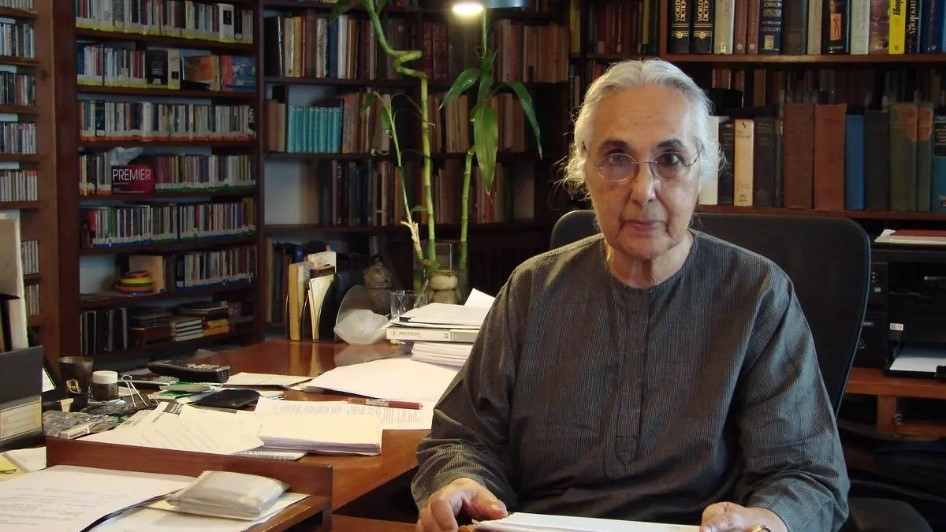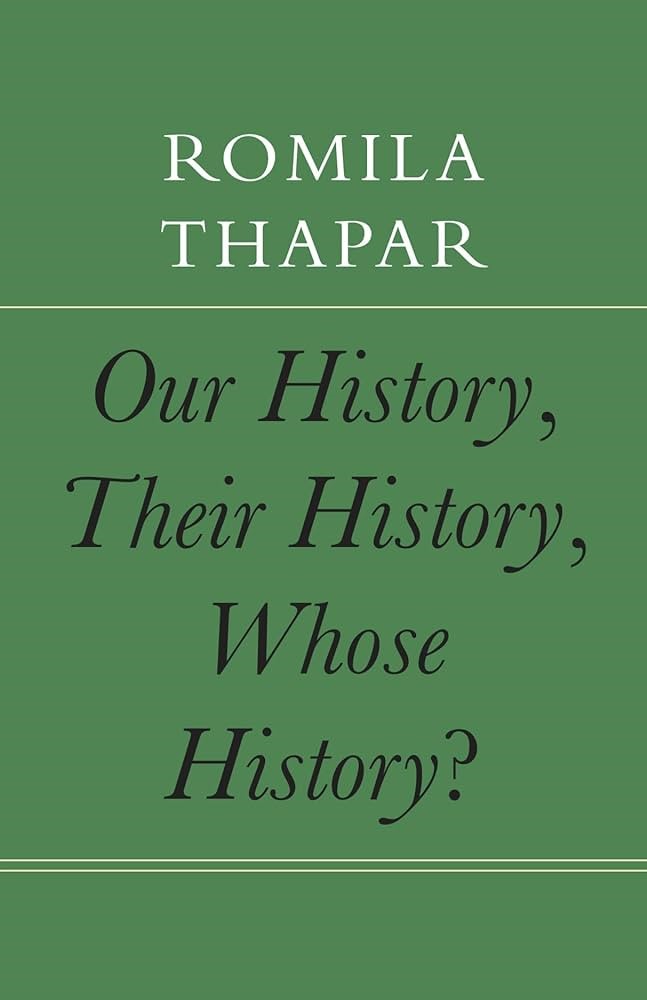Our History, Their History, Whose History?
Romila Thapar
Seagull Books
– Shayma S
“For history is the raw material for nationalist or ethnic or fundamentalist ideologies, as poppies are the raw material for heroin addiction. The past is an essential element, perhaps the essential element, in these ideologies. If there is no suitable past, it can always be invented.”
When a book begins with these ominous words from the well-known historian Eric Hobsbawm, you know the book is perfect for the times. Elegantly designed, Romila Thapar’s Our History, Their History, Whose History? is mandatory reading for the present moment in India, where history has been reduced to an abstract concept, tossed around and stretched beyond recognition. Published as part of Seagull Books’ The India List in 2023, the slim volume consists of a preface, one chapter, an afterwards, and some suggested readings. The chapter is an expanded version of the Dr CD Deshmukh Memorial Lecture the author delivered in New Delhi in January 2023.

We are living in times where history is being dug up, most literally; the figure of the Muslim invader and idol-breaker is writ large over the current climate. The very definition of history is being rewritten. In these contexts, Thapar’s book becomes important. As the author suggests, “Not every narrative about the past is valid history.”
Thapar contextualizes her work in the fierce battle between professional historians and those who are untrained in the methodology of history writing and reading and yet choose to fantasize about the past in uncritical ways. It is not a division only between “trained” historians and others because, as Thapar cites, there were others, like the mathematician-historian DD Kosambi, who was an outstanding historian despite being a scholar of an entirely different discipline. The difference lies in checking the reliability of quoted evidence and those who disregard these processes. The preface succinctly introduces specific terms such as hypothesis, inquiry, the four A’s – artefact, author, agenda and audience, and the Socratic method.
The book is a good summary of Thapar’s lifetime of work and approach to history. The introduction to nationalism includes marking out the difference between integrated nationalism and segregated nationalism. The purpose of her work, as she lays out, is to examine the link that exists between history and particular kinds of nationalism. History is not static, she writes. She covers the Aryan invasion theory debates, as well as that of historiography and how the past is constructed.
She writes that “As applied in India, in current times, the intention is to eliminate as much as possible of the presence of Islamic culture from the Indian past, so as to reduce or even negate its contribution to the present. Since the presence of an internal enemy is necessary to religious nationalisms, and because they were imprinted with the colonial two-nation theory, the target of hostility for Hindu nationalism was inevitably the Muslim community.”
If the NCERT erases Muslim history from textbooks (the part she covers in the afterword on the NCERT textbook controversy), they will also inevitably delete the parts which contain non-Muslim activities, such as the Bhakti movement in the 16th century, since it was the interaction of Hindu and Muslim cultures which gave rise to such developments.
The book is accessible to a serious reader with a brief familiarity with some historical concepts. Since it is an adaption of a lecture, it is not heavy with footnotes or too much jargon. Thapar being a product and indeed, doyen of the Marxist school has her own reservations with Muslim political mobilisations which she labels as communalism, but her work serves myriad purposes in the current context when history is being taught through mass forwards on WhatsApp rather than with any serious credentials. She takes on complicated questions like caste, Hindu-Muslim relations, migration and forms of nationalism, all while connecting them to the central question of how history ought to be understood.




